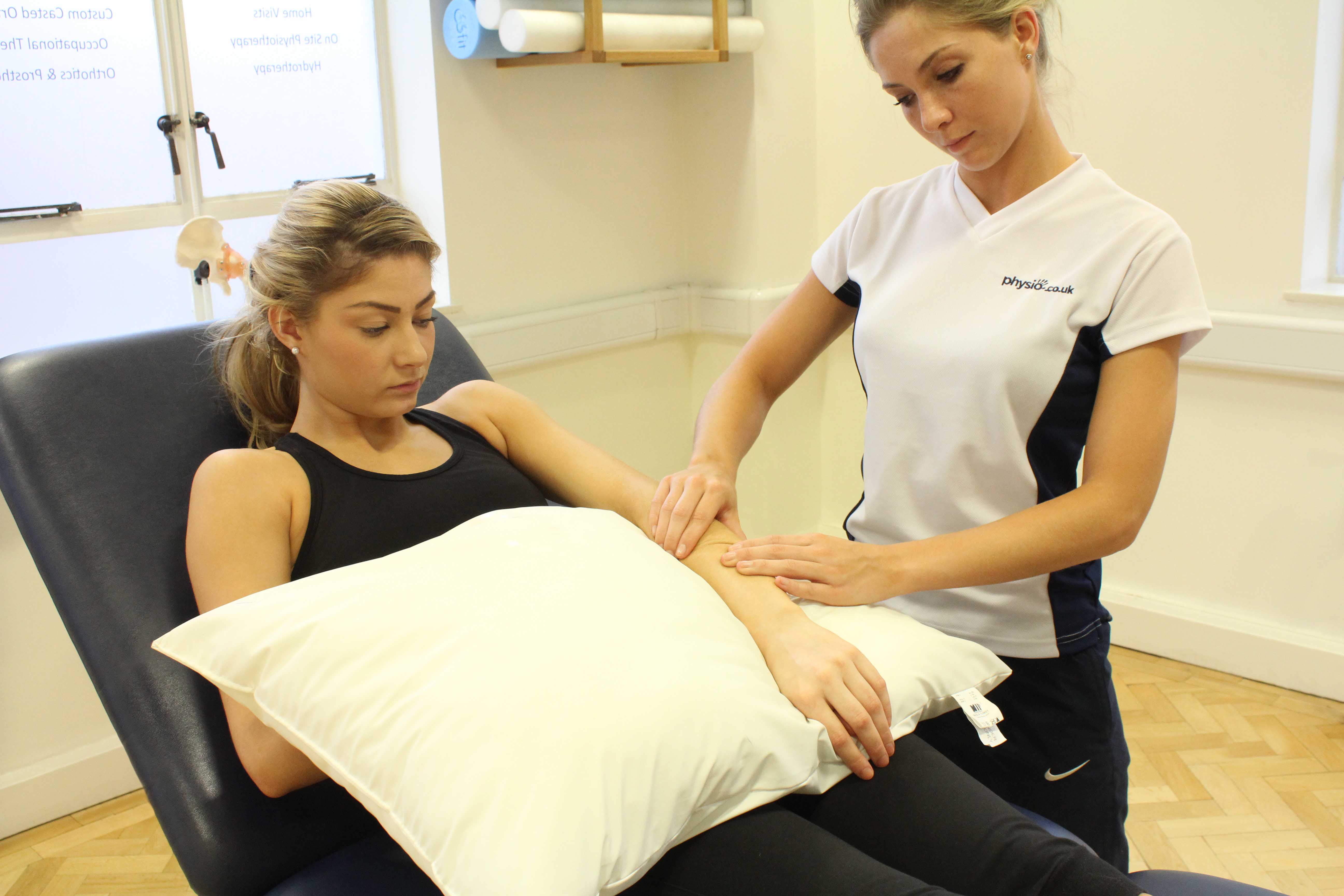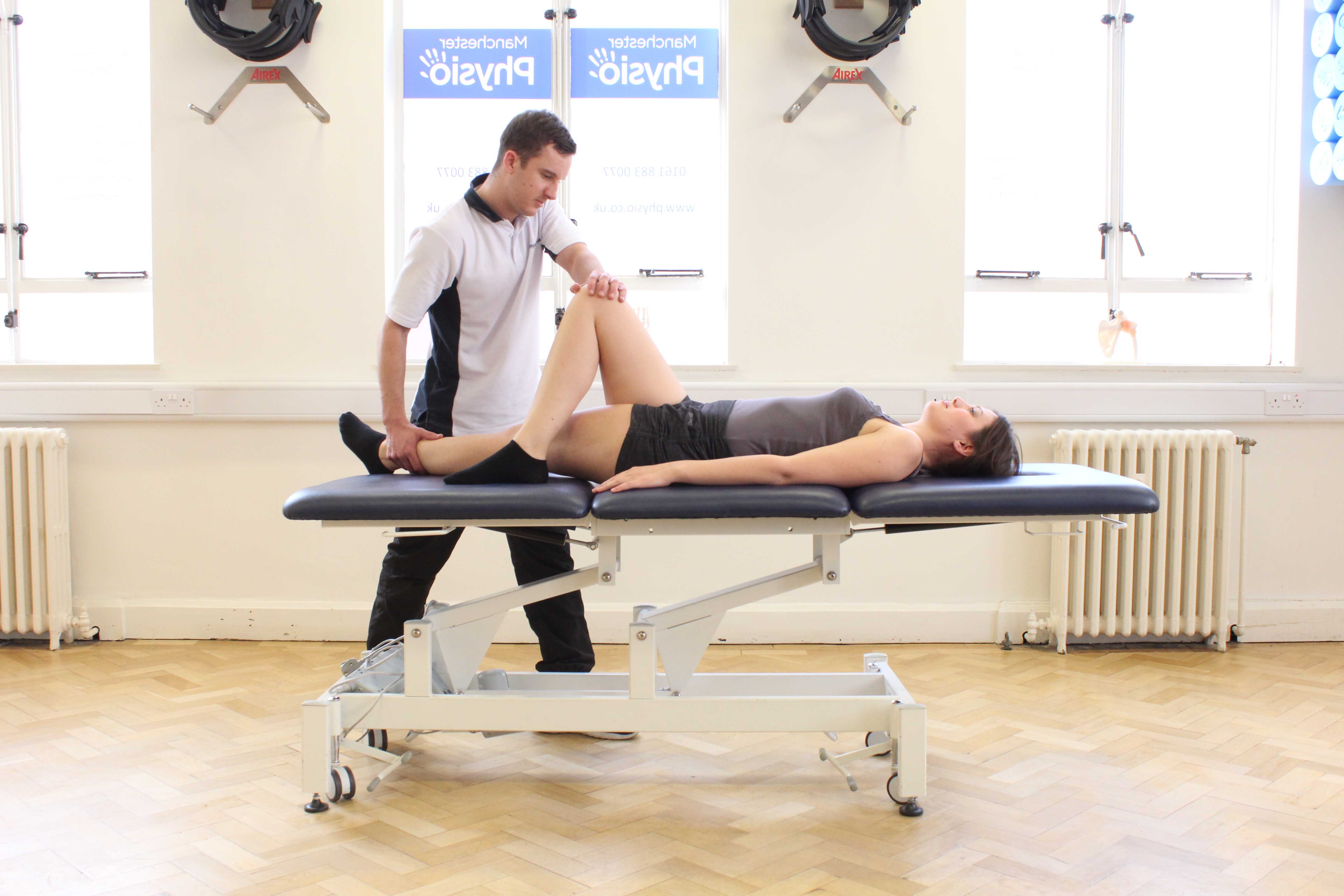What is postherpetic neuralgia?
Postherpetic neuralgia is constant and severe pain that affects the trunk of the body. It most commonly occurs as a result of an infection or shingles and may persist beyond the initial rash. Shingles is an infection that affects the nerves which then results in a rash on the affected area. Shingles can affect people of any age but is more common in individuals above the age of fifty. Shingles is often associated with pain that dissipates once the rash has cleared. Postherpetic neuralgia is the pain that continues after the rash as gone.
 Above: Soft tissue massage from a specialist physiotherapist to relieve pain
Above: Soft tissue massage from a specialist physiotherapist to relieve painCauses of postherpetic pain
Postherpetic neuralgia is primarily caused by inflammation of the affected nerves. These disruptions of the nerves may be a result of a number of factors including;
- Chemical irritation
- Diabetes
- Infections, such as shingles, syphilis, and Lyme disease
- Porphyria – group of metabolic disorders affecting nerves and skin
- Certain medication
- Swelling and irritation (inflammation)
- Trauma (including surgery)
- Chronic renal insufficiency
Symptoms of postherpetic neuralgia
There are a number of symptoms associated with postherpetic pain and they vary significantly in severity and characteristics. Common symptoms include;
- Constant burning pain around the affected area.
- Sharp, stabbing pains that come and go
- Dull pain that persists beyond the initial episode
- Itchiness around affected area
- Tenderness and sensitivity around the affected area of skin
- Discomfort caused by small pressure such as clothes rubbing
 Above: Stretches and mobilisations of the hip and knee to relieve stiffness and pain
Above: Stretches and mobilisations of the hip and knee to relieve stiffness and painWhat physiotherapy treatment will I receive for neuralgia / nerve pain?
If you are suffering from postherpetic pain that has resulted from a previous bout of shingles or other infections, physiotherapy will help reduce the pain, return function and relieve any other associated symptoms. Specialist physiotherapists at Physio.co.uk will provide you with a thorough assessment as well as a comprehensive treatment programme. Your assessment will involve a number of questions and tests. The tests aim to reproduce your pain so as determine the cause. A treatment plane will then be developed between you and your physiotherapist that will focus on your goals.
With postherpetic neuralgia, your main treatment goals will be to reduce pain around your body and in the affected area as well as help restore your ability to carry out everyday activities. Your physiotherapist at Physio.co.uk will provide you with a variety of treatments and activities to help you meet your goals. Activities will include;
- Pain modalities for the affected area
- Heat orice (for pain relief)
- Electrical stimulation to reduce pain
- Stress management
- Relaxation techniques
- General stretching and strengthening exercises to prevent deconditioning
- Cardiovascular exercise to improve overall health and fitness levels
- Hydrotherapy to reduce pain and improve function
- Education on how to make lifestyle changes that may affect your condition – advice on diet, managing sleep and managing rest
- Functional activities to help problems associated with daily living affected by postherpetic neuralgia
Summary
Postherpetic neuralgia is recurring pain that comes from the nerves and affects a certain part of the trunk. Postherpetic neuralgia is caused by damage and inflammation of the affected nerves and is often associated with a previous episode of shingles. Postherpetic pain is characterised by a constant, burning pain around the affected area. The pain can vary from mild to severe and may feel like a sharp, stabbing pain that comes and go irregularly. Physiotherapy has shown to be a very effective method in the treatment of postherpetic neuralgia. Physio.co.uk has specialist physiotherapists who will focus on reducing pain, increasing mobility and improving everyday activities that may have been affected by your postherpetic neuralgia. Call Physio.co.uk now on 0330 088 7800 for more information or to book an appointment please contact us. Or you can also book online today!

 0330 088 7800
0330 088 7800


































